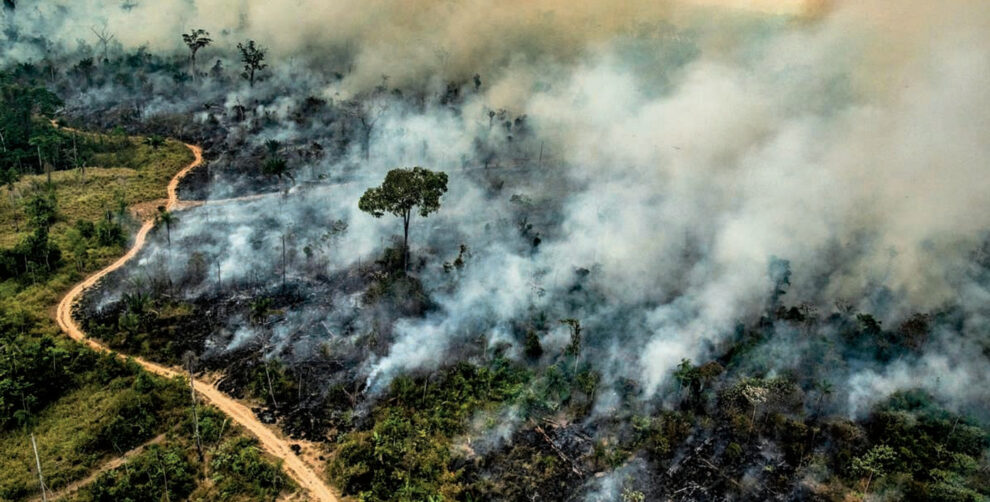For a week at the end of October, residents of several cities in Bolivia, including La Paz, the capital, were plunged into a thick cloud of black smoke and unbreathable air, caused by gigantic forest fires. On October 23, the national meteorology and hydrology service counted more than 3,070 outbreaks across the country, and around fifteen active fires of great magnitude. Monday October 30, the Bolivian Deputy Minister of Civil Defense, Juan Carlos Calvimontes, announced that the fires were under control.
Severe air pollution had pushed the authorities to close public and private schools, from Wednesday October 25 to Friday October 27, in four of the nine Bolivian departments – Beni (north-center), Santa Cruz (east), La Paz (west) and Cochabamba (center). On Monday, October 30, schools were able to reopen, but the air quality in several large cities remained seriously degraded.
The assessment of the disaster is still partial. There were no human casualties, but hundreds of animals were decimated, including monkeys, armadillos and turtles. Thousands of hectares of forests and endemic trees as well as crops have gone up in smoke, with the fires also ravaging protected natural areas. According to the environment ministry, around 2 million hectares of forests and pastures have burned since the start of the year.
Forest fires, which have become out of control due to the violent winds and drought that hit the Andean country, are started each year at the end of the dry season by farmers practicing the traditional technique of “eacho” – burning – aimed at preparing the land before sowing. Its ban had however been decreed, from 1er August, in the Santa Cruz region, the country’s largest city with 2.2 million inhabitants and an economic engine. In this agro-business capital, fires are generally started to push back the agricultural frontier and gain new land in the forest.
Bolivia is the third country in the world, according to Global Forest Watch, with the highest level of loss of primary forest and holds records for deforestation, particularly in the Amazon, which covers 40% of its territory.
Source: Globeecho
















